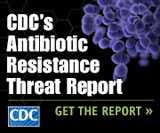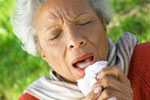Streptococcus pneumoniae, or pneumococcus, is a type of bacterium that causes pneumococcal [noo-muh-KOK-uhl] disease. Pneumococcal infections can range from ear and sinus infections to pneumonia and bloodstream infections. Children younger than 2 years old and adults 65 years or older are among those most at risk for disease. There are vaccines to prevent pneumococcal disease in children and adults.
Pneumococcal Vaccination
-
Pneumococcal Vaccines
Pneumococcal vaccines are very good at preventing severe disease and hospitalization. -
Vaccine Information Statements
These one-page CDC vaccine information statements explain who should get pneumococcal vaccines and when. -
Pneumococcal Vaccine Basics
Get comprehensive information about pneumococcal vaccines and other educational tools. -
Vaccine Safety
As with all vaccines, there can be minor reactions, including pain and redness at the injection site, headache, fatigue or discomfort, after pneumococcal vaccination. -
Pneumococcal Vaccine Recommendations
View recommendations of the Advisory Committee on Immunization Practices (ACIP).
Risks and How It Spreads
- Page last reviewed: September 6, 2017
- Page last updated: September 6, 2017
- Content source:


 ShareCompartir
ShareCompartir


